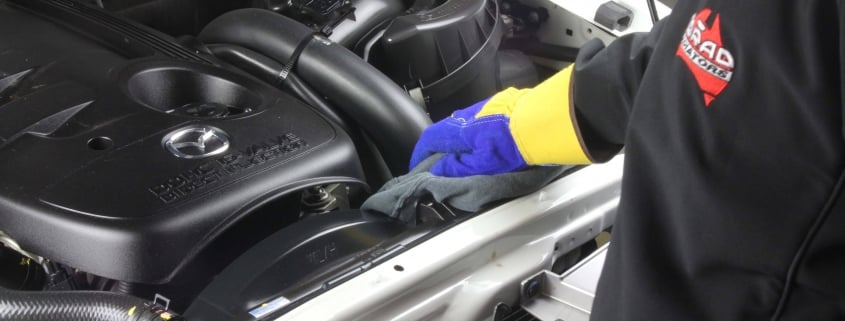Radiator Safety
Essential Radiator Safety Tips for Your Vehicle
Vehicle cooling systems are pressurised to prevent boiling when the engine temperature exceeds 100°C. A sudden loss of pressure, from component failure or an open cap, can cause the hot liquid to boil instantly and be expelled through the opening. And hot radiators can be very dangerous.
Natrad is committed to helping you stay comfortable and safe on the road. For specific advice on your vehicle, nip into Natrad for a radiator health check.
It used to be common practice to cool an overheated engine by lifting the bonnet and pouring cold water over the radiator while the engine was idling. The cold water would cool the metal top tank and radiator fins, removing excess heat. However, this can prove to be dangerous with modern vehicles, most of which have an aluminium radiator with plastic tanks. For example, the plastic tanks can become brittle with age and a sudden thermal change can cause cracking and the sudden release of hot coolant and steam.
Installing Adrad’s all alloy or copper/brass radiators with metal tanks can assist in avoiding these dangers. Correct maintenance and replacement of your radiator is also essential. Plastic tanks and rubber hoses will degrade over time so it’s important to have them checked regularly.
The photos below show a vehicle owner who received 3rd degree burns when the plastic tank on his 4×4 exploded. He was air lifted from the Birdsville track to a Brisbane hospital for treatment. He has since fitted an all metal Adrad radiator to ensure this never happens again.
Adrad quality radiators protect both you and your vehicle by incorporating only the highest quality technology and components.

STAY SAFE: Allow engine to cool. Using protective gloves and a rag, turn radiator cap part-way to release pressure before opening completely.

Never open a radiator cap with unprotected hands. A hot radiator can release burning hot coolant & steam.








